The Italian word macchia is used to describe any stain, spot, or blot caused by ink, paint, dirt, or liquid, whether created intentionally or not. It directly derives from the Latin macŭla.
macchia
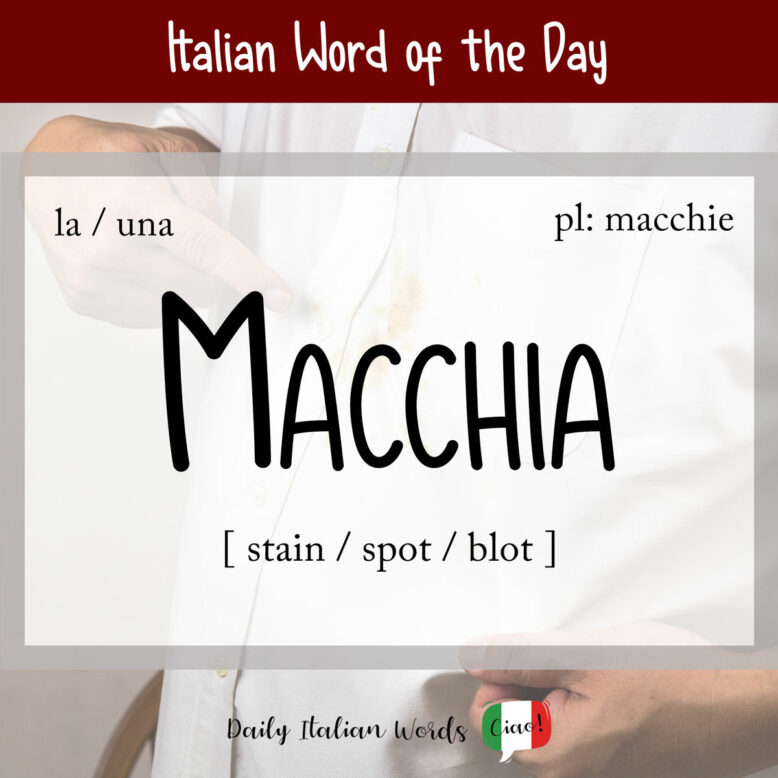
Because it is a feminine noun, it takes the following definite and indefinite articles:
- la macchia = the stain
- le macchie = the stains
- una macchia = a stain
- delle macchie = (some) stains
Perché questa macchia non va via?
Why won’t this stain come out?
Here are a few common verbs you will see used with macchia:
- levare / togliere / rimuovere una macchia = to remove a stain
- fare una macchia = to leave a stain / to stain
- farsi una macchia = to get a stain / get stained
Some common things that leave macchie include colore (colour / paint), olio (oil), unto (grease), vernice (paint), vino (wine), inchiostro (ink) and sangue (blood).
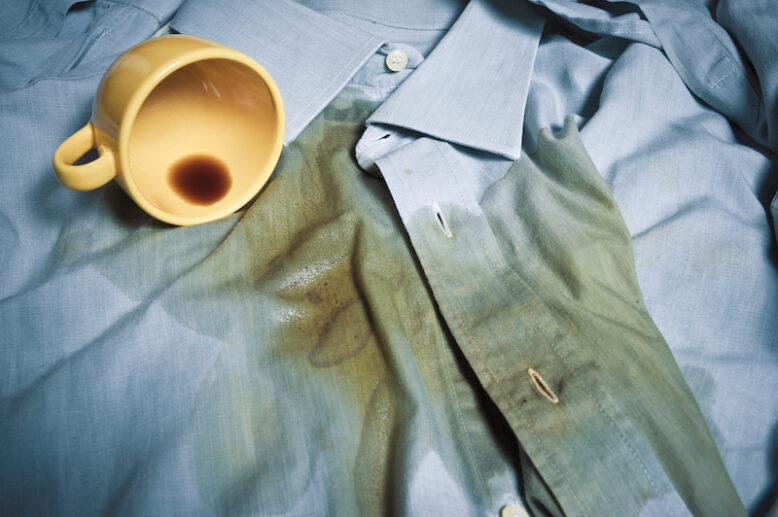
Ti sei fatto una macchia sulla maglietta. Bisogna levarla subito!
You’ve got a stain on your shirt. You need to remove it right away!
Note that you can also use the verbs macchiare (to stain) and macchiarsi (to stain oneself) as an alternative to fare / farsi una macchia.
Ti sei macchiato la maglietta. Bisogna pulirla subito!
You’ve stained your shirt. You need to wash it right away!
In addition to stains, macchia can also refer to spots on an animal’s fur. For this reason, Macchia is quite a popular name for dogs in Italy.
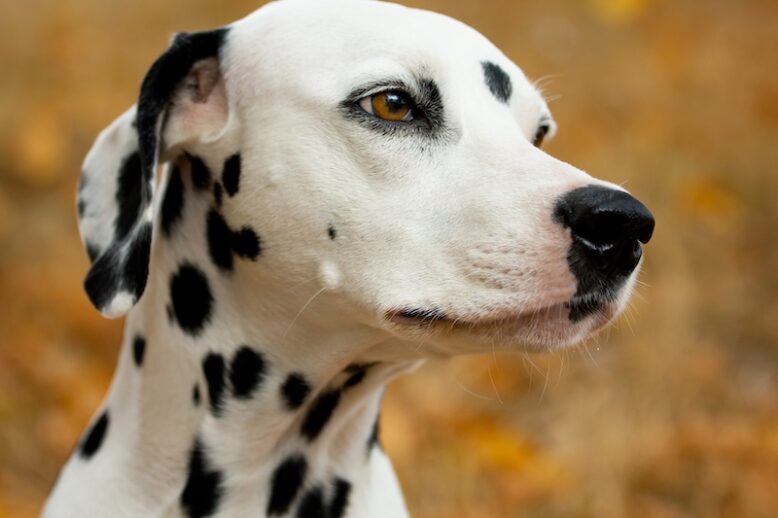
The adjective spotty can be translated as macchiato or a macchie. For example, a green spotty dress would be un vestito verde a macchie.
An intriguing idiomatic expression is a macchia di leopardo (leopard spots), used to depict something that occurs haphazardly or in a non-uniform manner, similar to the way leopard spots are unevenly distributed across its body.
Ecco una mappa dei casi, diffusi a macchia di leopardo in tutto il mondo.
Here is a map of the cases, scattered sporadically around the world.
A similar expression is a macchia d’olio (oil stain), used to describe something, such as news or gossip, that spreads quickly.
La notizia si sta diffondendo a macchia d’olio.
The news is spreading like wildfire.
Just like stain or spot can be figuratively used to mean blemish or dishonor, the Italian word macchia can be used in a similar manner. For instance, una macchia sull’onore di qualcuno translates to a stain or blot on someone’s honour.
Expanding on its original meaning, macchia is also used to describe a bush, scrub, or maquis (e.g., terreno a macchia = scrubland). This usage originates from the multi-colored appearance of the plants, distinct from the surrounding ground. This alternate interpretation has led to the development of a couple of idiomatic expressions, including:
- darsi alla macchia = to take to the bush / hide out
- vivere alla macchia = to live in hiding
- fare (qualcosa) alla macchia = to do something clandestinely
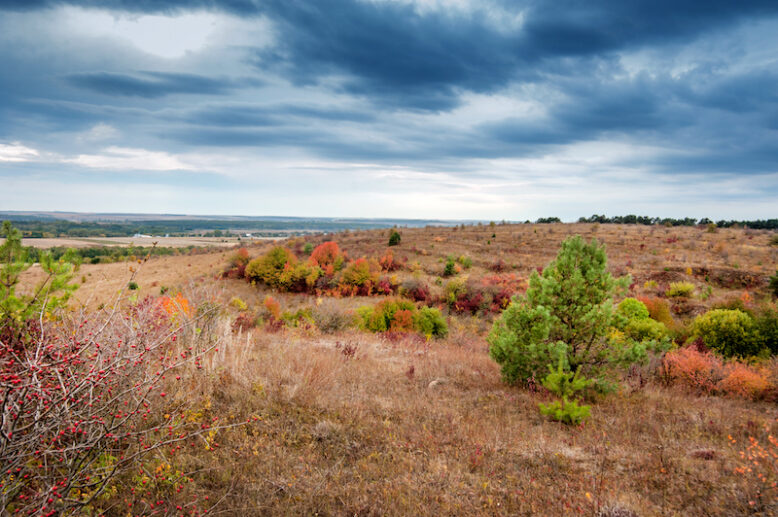
To wrap up, let’s briefly explore some of the other, more technical translations for macchia, primarily used in photography, videography, television and astronomy.
- macchia fluorescente = fluorescent spot
- macchia di riflessione = flare spot / ghost
- macchia di luce = hot-spot
- macchia lunare = lunar spot
- macchia solare = sunspot
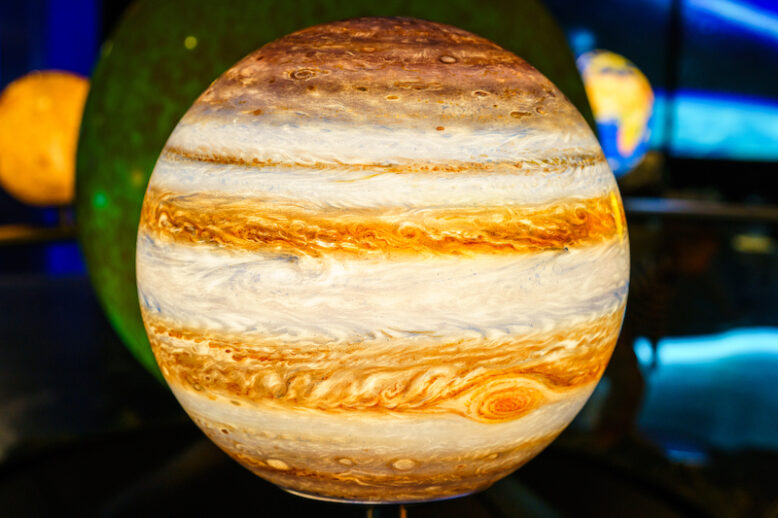
Heather Broster is a graduate with honours in linguistics from the University of Western Ontario. She is an aspiring polyglot, proficient in English and Italian, as well as Japanese, Welsh, and French to varying degrees of fluency. Originally from Toronto, Heather has resided in various countries, notably Italy for a period of six years. Her primary focus lies in the fields of language acquisition, education, and bilingual instruction.


